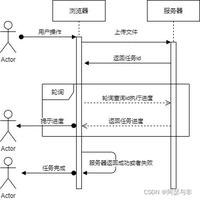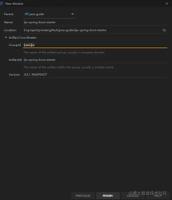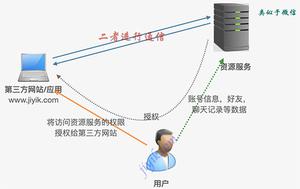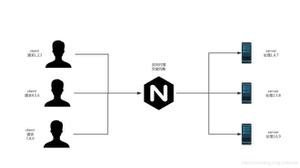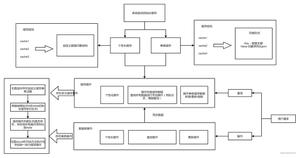Springboot静态资源访问实现代码解析
springboot静态资源加载默认是从/static(或/public或/resources或/META-INF/resources) 目录下加载静态资源。
加载的优选级别:/META-INF/resources》/resources》/public》/static
静态资源的加载源码分析(WebMvcAutoConfiguration类)
首先从WebMvcAutoConfiguration.class自动配置类部分代码来看:
//添加静态资源规则
public void addResourceHandlers(ResourceHandlerRegistry registry) {
if (!this.resourceProperties.isAddMappings()) {
logger.debug("Default resource handling disabled");
} else {
Duration cachePeriod = this.resourceProperties.getCache().getPeriod();
CacheControl cacheControl = this.resourceProperties.getCache().getCachecontrol().toHttpCacheControl();
//webjars依赖映射规则
if (!registry.hasMappingForPattern("/webjars/**")) {
this.customizeResourceHandlerRegistration(registry.addResourceHandler(new String[]{"/webjars/**"}).addResourceLocations(new String[]{"classpath:/META-INF/resources/webjars/"}).setCachePeriod(this.getSeconds(cachePeriod)).setCacheControl(cacheControl));
}
//本地配置的映射规则
//this.resourceProperties.getStaticLocations() 从ResourceProperties中加载静态路径
String staticPathPattern = this.mvcProperties.getStaticPathPattern();
if (!registry.hasMappingForPattern(staticPathPattern)) {
this.customizeResourceHandlerRegistration(registry.addResourceHandler(new String[]{staticPathPattern}).addResourceLocations(WebMvcAutoConfiguration.getResourceLocations this.resourceProperties.getStaticLocations())).setCachePeriod(this.getSeconds(cachePeriod)).setCacheControl(cacheControl));
}
}
}
ResourceProperties类部分源码
@ConfigurationProperties(
prefix = "spring.resources",
ignoreUnknownFields = false
)
public class ResourceProperties {
//springboot默认的加载路径
private static final String[] CLASSPATH_RESOURCE_LOCATIONS = new String[]{"classpath:/META-INF/resources/", "classpath:/resources/", "classpath:/static/", "classpath:/public/"};
private String[] staticLocations;
private boolean addMappings;
private final ResourceProperties.Chain chain;
private final ResourceProperties.Cache cache;
映射规则总结
在springboot静态资源加载规则中,除了”标准“静态资源位置之外,还有一个较为特殊的WebJars
“标准”静态资源映射规则
所有的“/**”的请求,如果没有对应的处理,那么就去默认映射的静态资源目录下去找,如下所示:
- "classpath:/META-INF/resources/"
- "classpath:/resources/"
- "classpath:/static/",
- "classpath:/public/"
- “/**”
所有的webjars的请求都会去 ”classpath:/META-INF/resources/webjars/**“去资源
(如果 以jar包的方式来引入jquery包)
在pom.xml中引入依赖
<dependency>
<groupId>org.webjars</groupId>
<artifactId>jquery</artifactId>
<version>3.3.1-2</version>
</dependency>
从引入的包目录来看
springboot默认欢迎页面
自动去加载默认目录下的index.html;如static/index.html
自定义配置静态资源目录
在application.properties文件中去配置
//配置test为静态资源目录
spring.resources.static-locations=classpath:/test/
遇到的坑
在配置了静态资源目录的时候,跳转到的页面路径不能写绝对路径,
比如:spring.resources.static-locations=classpath:/test/ 我配置test为静态资源的加载位置,在访问的时候不需要写test
请求:http://127.0.0.1:8085/test/1.png
请求:http://127.0.0.1:8085/1.png
以上是 Springboot静态资源访问实现代码解析 的全部内容, 来源链接: utcz.com/z/323216.html


